Personal tragedy driving Scallywag skipper David Witt in Sydney to Hobart
David Witt survived the 1998 race and this year he’s skippering one of the favourites to honour a mate lost at sea in another ferocious weather event, writes Amanda Lulham.
- How a 12-year-old survived 1998 carnage
- Sounds of panic and hysteria haunt skipper
- Skipper remembers: ‘I can still see the boat sinking’
- Sydney to Hobart: Recalling the killer storm of 1998
He was young, brash, fearless and embraced being labelled “a cowboy” by the sailing establishment.
A former 18-foot skiff sailor, David Witt was not averse to stirring the pot, making show-pony manoeuvres that irked the old boys of the sport but paid off.
He kept sponsors happy, won events and surrounded himself with a tight-knit group of fun-loving but skilled sailors.
In 1998, Witt, then just 26 and skipper of the 85-foot ketch Nokia, had started to make noise in world sailing circles.
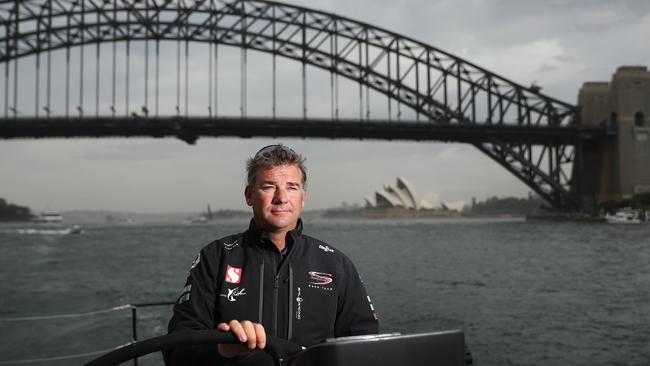
But what happened at sea that day and night between December 27 and December 28, changed him as a sailor and as a man.
It taught him deep lessons about survival and leadership which he was able to draw on from within earlier this year “on the worst day of my life, a day I will never forget, ever”.
Witt has been sailing competitively all around the world for decades but the ‘Bass Strait bomb’ in the form of a deep depression that exploded on the 1998 Sydney to Hobart fleet, knocking boats over and under, shredding sails and life rafts and claiming the lives of six men.
Nearly two decades later, Witt experienced the closest he has come to that maelstrom.
While skippering Scallywag – a different Scallywag to the one he will helm to Hobart this Boxing Day - on March 26 this year his good mate and crewman John Fisher, known by the nickname ‘Fish’, was lost at sea during a heinous seventh leg of the Volvo Ocean Race.
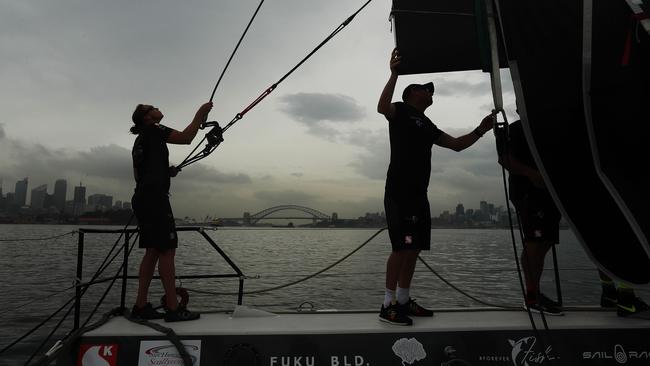
“In 1998 the waves were breaking with six foot of white water on top. It was ridiculous, scary,’’ Witt says.
“When we tried to search for ‘Fish’ the waves were so big we couldn’t motor up them, they were so high. It reminded me of that Hobart.”
An emotional Witt says he applied lessons learned from 1998 Sydney to Hobart in the aftermath of Fisher being swept overboard in the Southern Ocean, approximately 1400 nautical miles west of Cape Horn, in 45-50 knot winds, massive seas and four-degrees Celsius water.
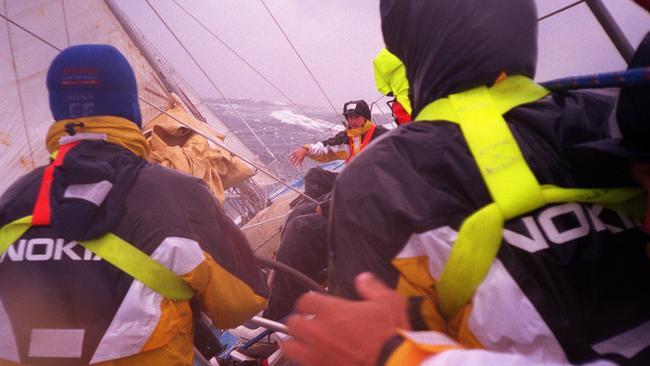
“We went down an enormous wave in the Southern Ocean. You chose not to go down them in the day and at night you can’t see them,” Witt says.
“The boat stood on its nose and pitch-poled. Fish just happened to be in the process of clipping (his safety line) back on.”
Witt, who has seen on-board video of the tragedy, believes Fisher was dead before he hit the water after being struck on the back of the neck by a main sheet block and thrown overboard from Team Sun Hung Kai/Scallywag.
Despite an exhaustive search in the deadly conditions by Witt and his distressed crew, the body of the 47-year-old was not recovered.
“In many ways, in terms of not panicking and things, acting like a leader, the 1998 race prepared me a bit for the situation that followed,’’ Witt says.
“But you can never be prepared for a loss of life. Never be prepared to lose a friend. Never be prepared for that. Never.”
Due to their isolation at the time of the tragedy, it took a distraught Witt and his shattered team almost a week to reach port in Chile.
“I knew I would be OK because I had been in the ‘98 Hobart and those conditions were worse,” he says.
“I got the boat and the rest of the crew home safely.
“We were in the most isolated place on the planet with people broken emotionally, in tears, struggling to get it together.
“It took seven days in 50 knot winds to get to Chile. For me that was the biggest test of character, to keep my people safe and in sound mind.
“We all went back (to complete the Volvo race) again. We all finished the race together in honour and memory of ‘Fish’. We had no one wanting to quit.
“It was important for me that they continue with their passion and love. ‘Fish’ would have hated them to have lost that because he was gone.
“It was what ‘Fish’ would have wanted.”
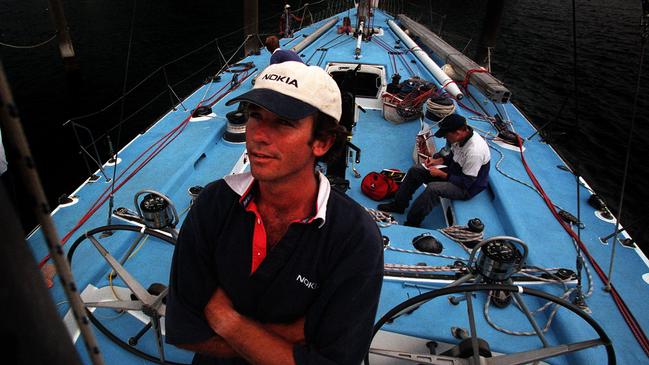
While a minute’s silence will be held on the second day of this year’s 74th Sydney to Hobart, Witt and his crew on the Hong Kong 100-foot supermaxi Scallywag will also hold a private memorial for their mate ‘Fish’ while at sea.
“Forever Fish” is on the sail and the side of the boat and Witt says his mate is forever in his thoughts and heart as is his old navigator Andrew Short, who drowned when his yacht ran aground in the Flinders Islet race in 2007, nine years after they sailed and survived the 1998 Hobart together.
“In 1998, when it was going crazy, all the choppers in the air and maydays going off, the radio was horrendous. The last thing we needed to do was panic,’’ Witt says.
“We had a little nav (navigation) station away a bit and Shorty said, ‘Don’t let everyone listen to this, they don’t need to hear it’. So we didn’t tell the others but we listened to see if we could help.
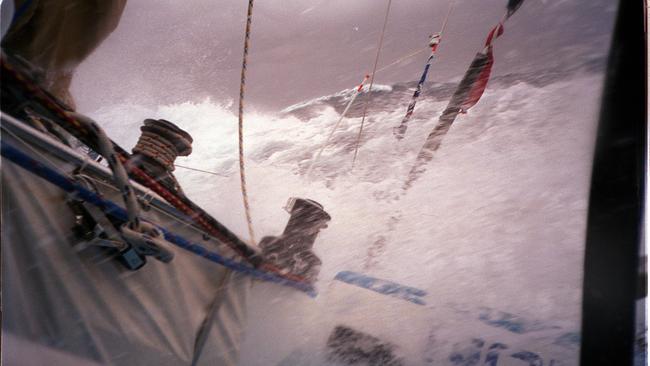
“Shorty taught me about being a leader in the 1998 race. About making the tough decisions when you need to.’’
When the fleet sets sail on Wednesday, Witt will be one of numerous sailors who competed 20 years ago who return regularly to race again.
This year, his objective is to skipper the supermaxi Scallywag to its first line honours win.
“’Never give up’ has become a motto of this team now, because of ‘Fish’,’’ Witt says.
“I still really struggle with it every day. But I have now come to the realisation I always will.’’
Every Test, ODI & T20I live, ad-break free during play and in 4K. Only on Foxtel. SIGN UP TODAY!



